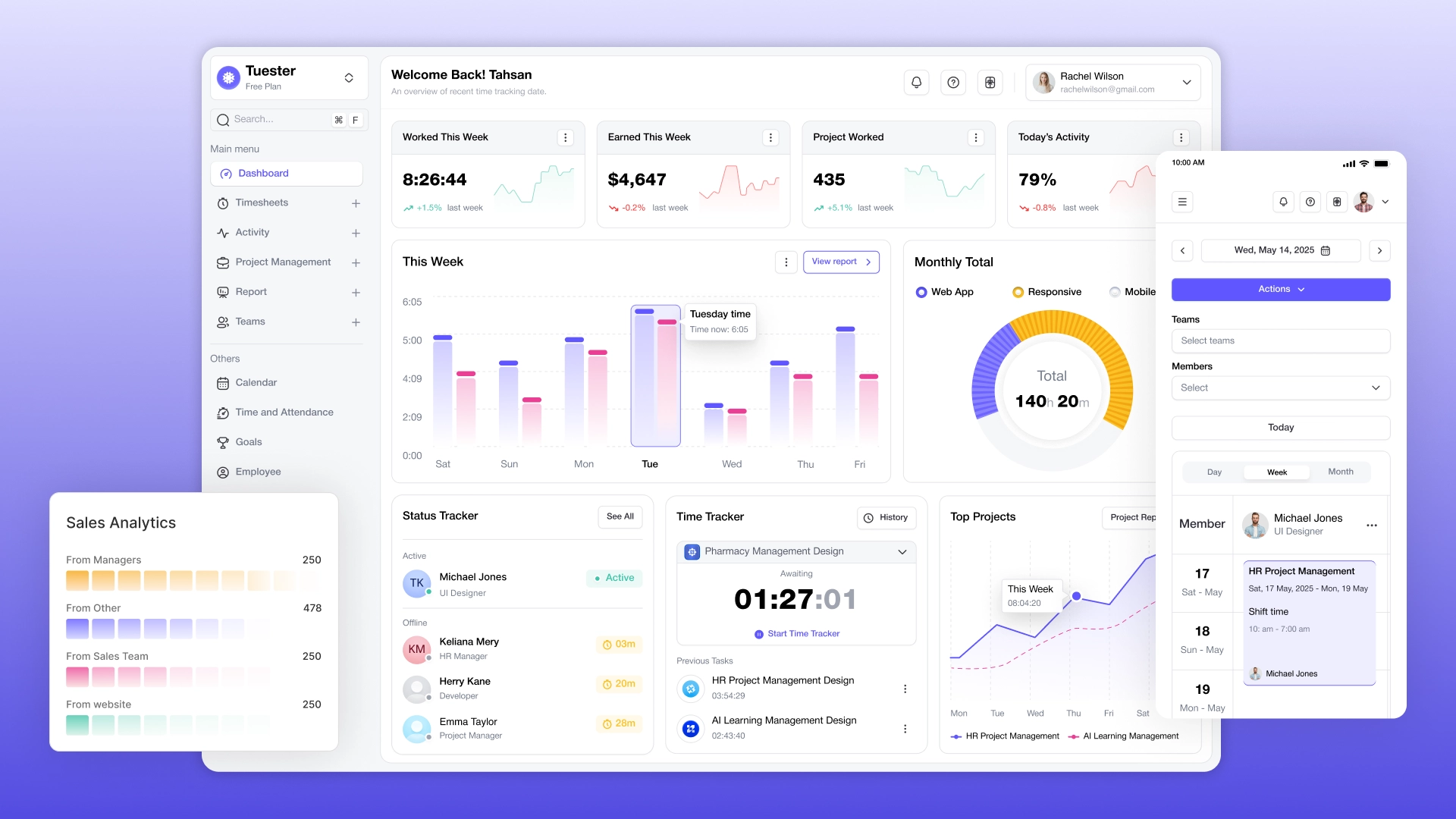
Running a business is becoming more and more difficult every year. The market situation is changing rapidly, competition is intensifying, and clients demand attention here and now. Without a reliable management system it is difficult to count on stable growth, because today it is not the biggest business that survives, but the one that adapts quickly. Therefore, the development and implementation of CRM systems is not just a trend, but a necessity and a strategic advantage. Whatever field you work in, if you want to keep your finger on the pulse and keep up with innovations, it’s time to order CRM development for business.
AVADA MEDIA is a reliable partner for those who want to take their business to the next level. Our team will develop for you a full-fledged intelligent tool that will help you build effective business processes, accelerate sales, analyze customer behavior and optimize the work of the whole team.
A modern CRM system for business is a comprehensive platform that integrates all customer interaction channels and internal business processes into a single information space. Automation with a modern customized management system will help you reduce costs, improve service and scale your project without risk and stress. This tool allows you to control every step – from the first touch of a potential client to post-sales service, analyze data and build long-term, profitable relationships.
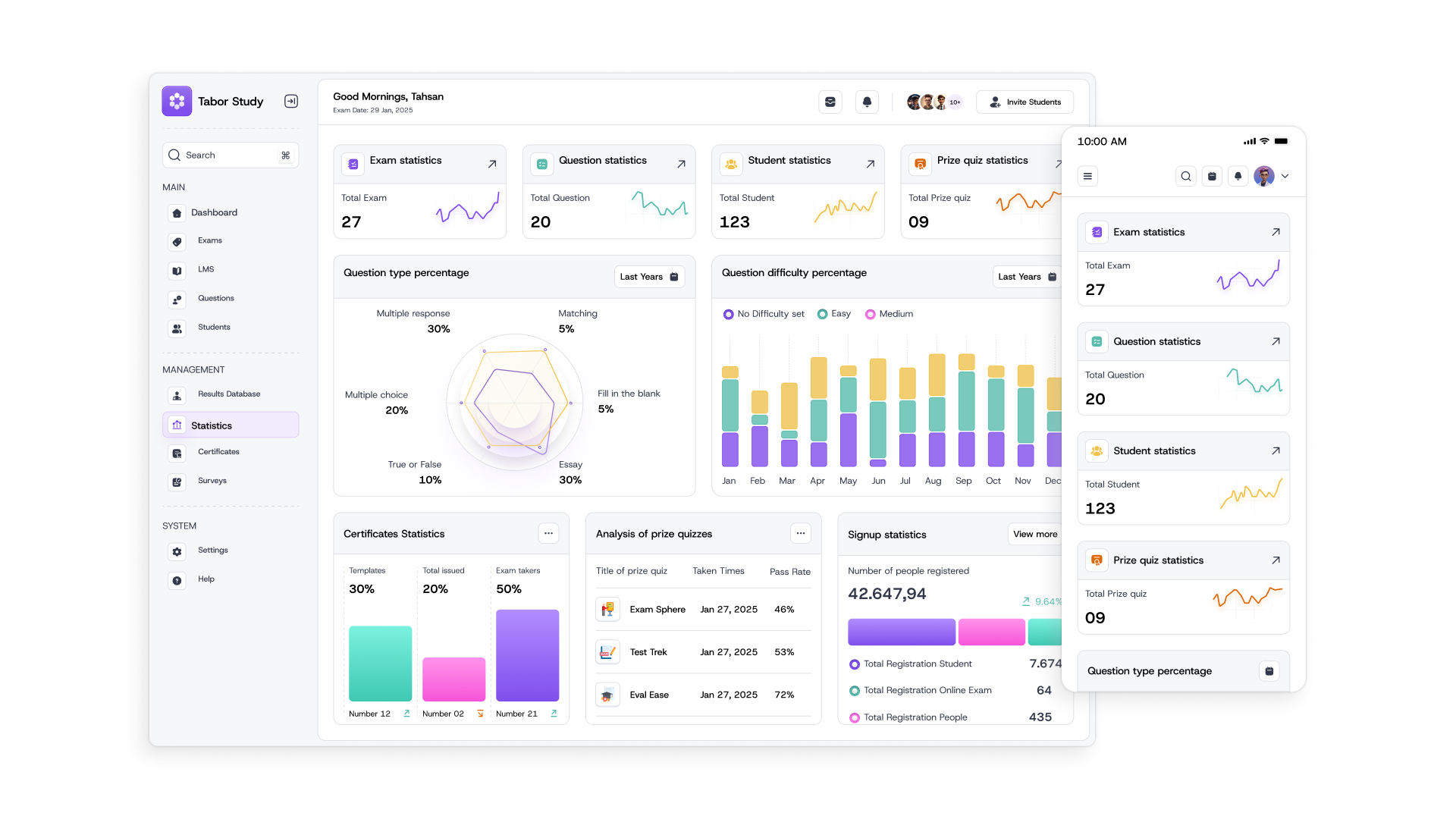
Custom development of your own CRM for business provides a solid foundation for growth, increased profitability and enhanced competitive advantage.
Automation of business processes. CRM system development permanently eliminates the human factor from operational activities. No more forgotten tasks and late notifications, data loss and missed customers. CRM captures, reminds and helps the team to work as a single cohesive organism.
Increased efficiency. Automated scripts for processing customer data and requests, sales, production and logistics save time, reduce costs and increase team productivity. Everything important is under control, everything routine and regular is automated.
Transparent analytics and control. CRM program for business will provide complete information at any time in a convenient format: online dashboards will display key metrics, departmental reports, sales funnel efficiency and other indicators. Thanks to up-to-date data, you will be able to make decisions not intuitively, but reasonably and quickly.
Optimization and standardization of processes. Implementing CRM for business helps you get rid of rash maneuvers, unnecessary risk, and disparate data. All tasks, transactions, communications and documents are formed according to a single standard. This helps eliminate errors, speeds up routine operations and increases employee accountability. Business management system with a web-based interface that provides unified regulations.
Increasing the effectiveness of marketing. Modern CRM for business is a tool for deep analysis, demand forecasting and launching personalized marketing campaigns. With CRM tools, you can segment your audience more accurately to build customized customer interaction scenarios, increasing the likelihood of conversion and shortening the transaction cycle. This improves return on advertising investment.
Improved service. CRM software personalizes your communication with customers: you can record the entire history of interactions from the first contact to repeat purchases to respond faster to requests, anticipate needs and send customized offers at the right time. Satisfied customers return and bring new ones, and your average check goes up.
Save time and resources. Automating processes significantly reduces the workload of your employees, freeing up their time for important strategic tasks. You can optimize staffing levels and reallocate resources while day-to-day activities (sending emails, setting tasks, calculations, etc.) in CRM will be performed automatically.
Flexibility and scalability. Customized business automation system allows you to easily adapt to market changes without risk and compromise: add new departments, branches, products, integrations. Growing order volumes, expanding your product range, entering new markets – all this is possible thanks to the right architecture of a unique CRM.
Data Security. When developing a customized CRM system for businesses of any format, direction, and scale, our developers provide for multiple layers of data security, including:
Partner and customer trust. For partners, investors and clients, having their own business management system with advanced automation is an important marker of a company’s maturity. It indicates transparency of processes, stability of operations and readiness to scale.
A CRM system is your control center, where every detail matters and the coordinated work of all departments becomes a reality thanks to process automation.
CRM system interface screens
A turnkey CRM implementation helps solve a number of problems critical to a company’s growth, sustainability and development.
Centralization of processes and data. Developing CRM systems to automate your business is needed, first of all, to create a unified digital space where it is convenient to interact with customers and between employees. It collects all information about customers, transactions, orders and communications, which is available to all authorized persons at any time.
Sales Automation. Developing CRM systems for business allows you to build a predictable, clear model for sales and customer service. Scripts, automatic notifications, control of transaction stages – all this reduces risks and provides a high level of service at every stage.
Merchandise, warehouse and logistics management. Creating a CRM system means avoiding shortages and excess inventory in warehouses, as well as optimizing purchases. In particular, CRM for merchandise business is indispensable for tracking balances, analyzing the turnover of goods and integration with accounting systems.
Conversion growth. Increased sales are facilitated by the control of each lead, scripts for automatic processing of transactions, motivation system for salespeople. With individual CRM marketing for business becomes more effective: you can launch personalized campaigns, segment customers by behavior, interests and interaction history.
Increase in conversions. Increase in sales is facilitated by control of each lead, scripts for automatic processing of transactions, motivation system for salespeople. With individual CRM marketing for business becomes more effective: you can launch personalized campaigns, segment customers by behavior, interests and interaction history.
Effective team management. CRM system for a manager is a convenient tool for setting tasks, controlling their implementation, analyzing KPIs and employee performance. It reduces the load on middle managers and allows you to see the real picture.
Increased competitiveness. Quick response to market demands, accurate work with clients, and efficient management of internal resources give a serious advantage over competitors.
Preparing for global digitalization. Individual CRM development becomes the basis for the implementation of Big Data, machine learning and business intelligence technologies in the future. Today, the whole world is rapidly digitalizing, and it is no longer enough just to have a website or social networks – everyone needs comprehensive automation of the company’s business.
Cost reduction. Transition from manual processes to digital technologies leads to a reduction in costs – for staff, rent, paperwork and infrastructure. The cost of developing a CRM system is significantly lower than all these costs.
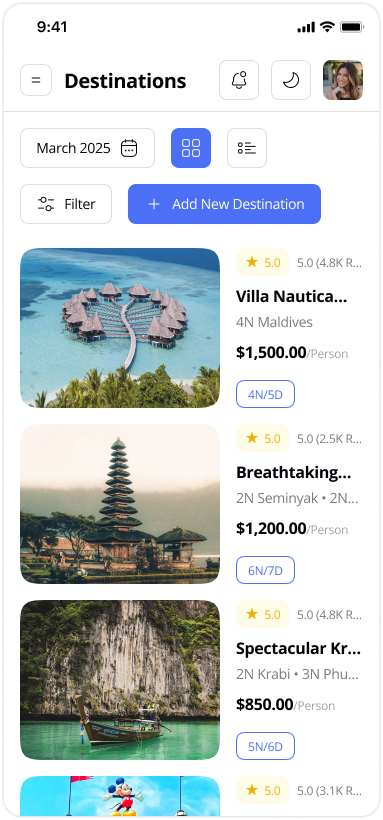
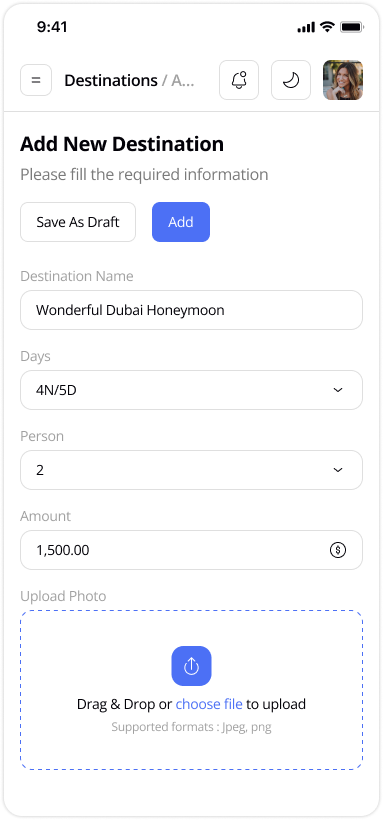
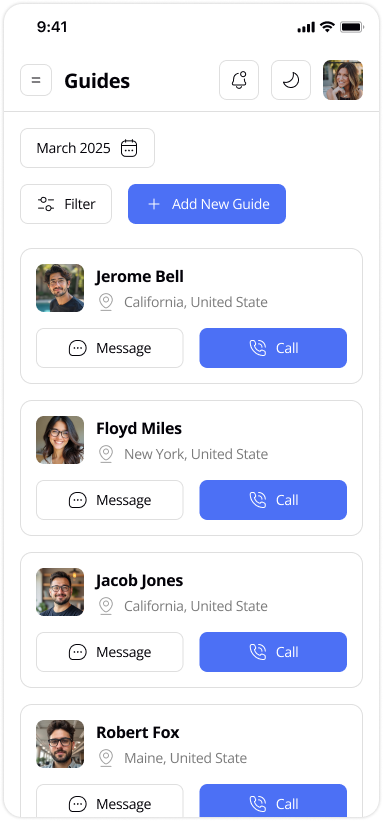
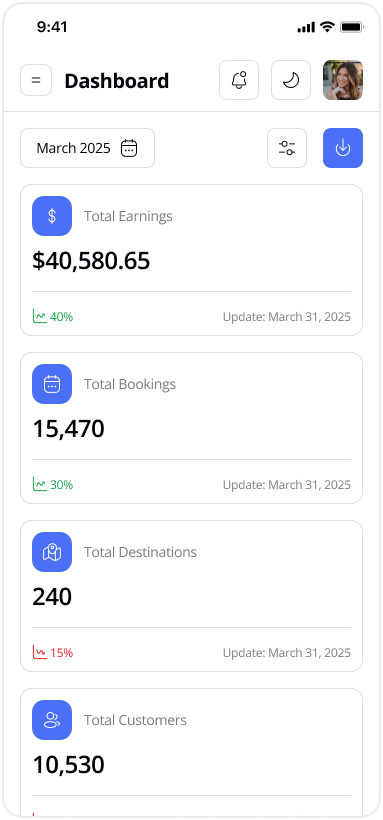
Screens of a mobile CRM system
In the past, only large corporations sought to order CRM, but today competent process management is becoming critical for businesses of any size and direction.
Regardless of business direction and specificity of processes, a customized CRM system will be a powerful driver of your company’s growth, accuracy, and efficiency. Automation will not only optimize daily tasks, but also open new horizons for development.
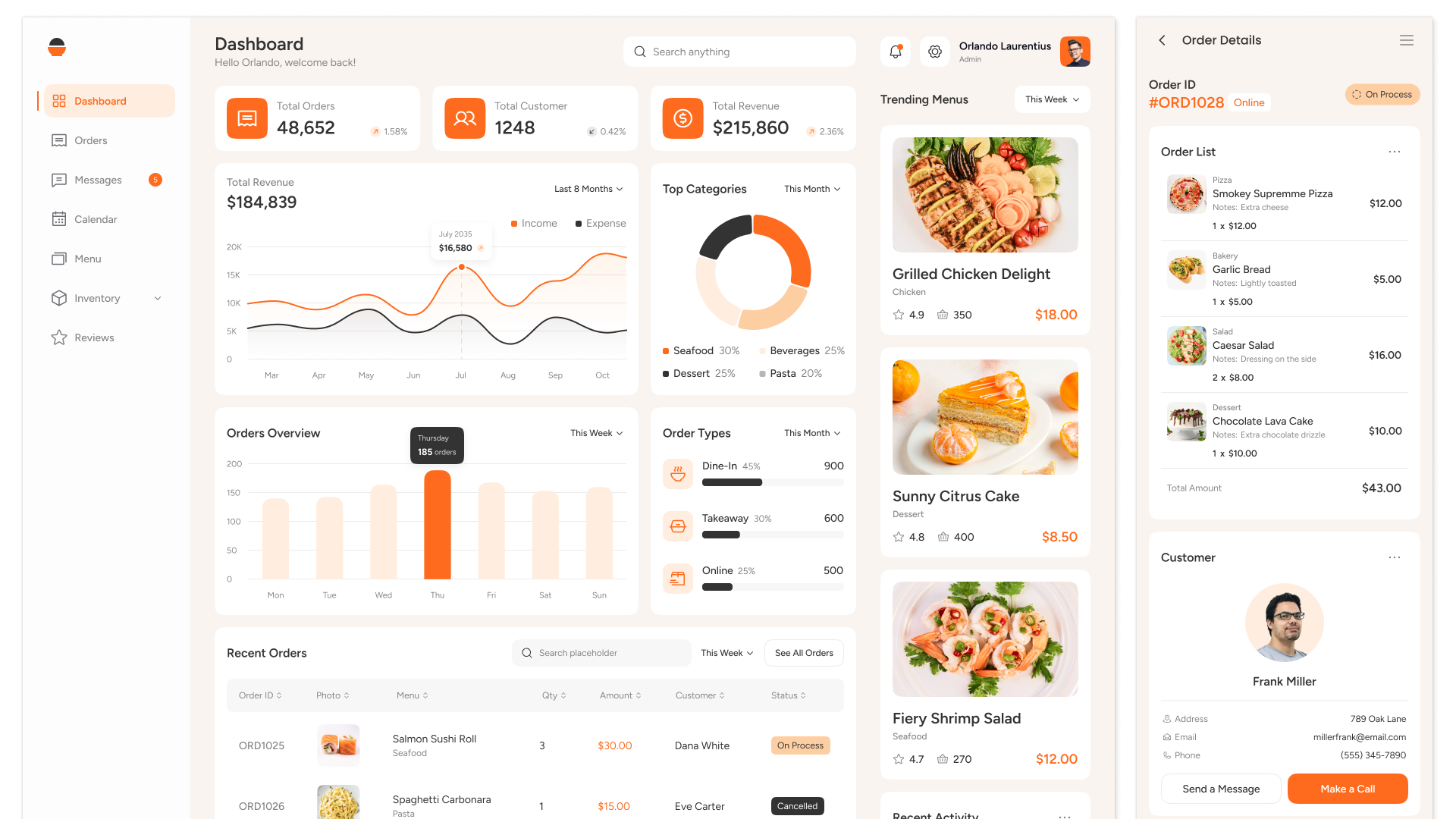
Creating a CRM system will help make your business manageable, transparent and ready to scale, but it is important to realize that an effective CRM system cannot be universal. Each niche requires its own unique set of features that takes into account the specifics of work, processes and market requirements. Moreover, no matter what region CRM-system is designed for – Ukraine or Europe, it must ensure high efficiency and compliance with local legislation.
Modern CRM is not just a customer database, but a multi-level system that combines data, processes and analytics. Its structure is built around several key modules, helping to build an effective management model, customized to the real tasks of a small startup, a large company or a multinational corporation.
Modular architecture not only allows you to run your business program faster, but also to easily supplement it with new features. If you already have a CRM system, the development of additional functionality is a priori not limited by anything. You get a tool that develops with you, not limits your potential.
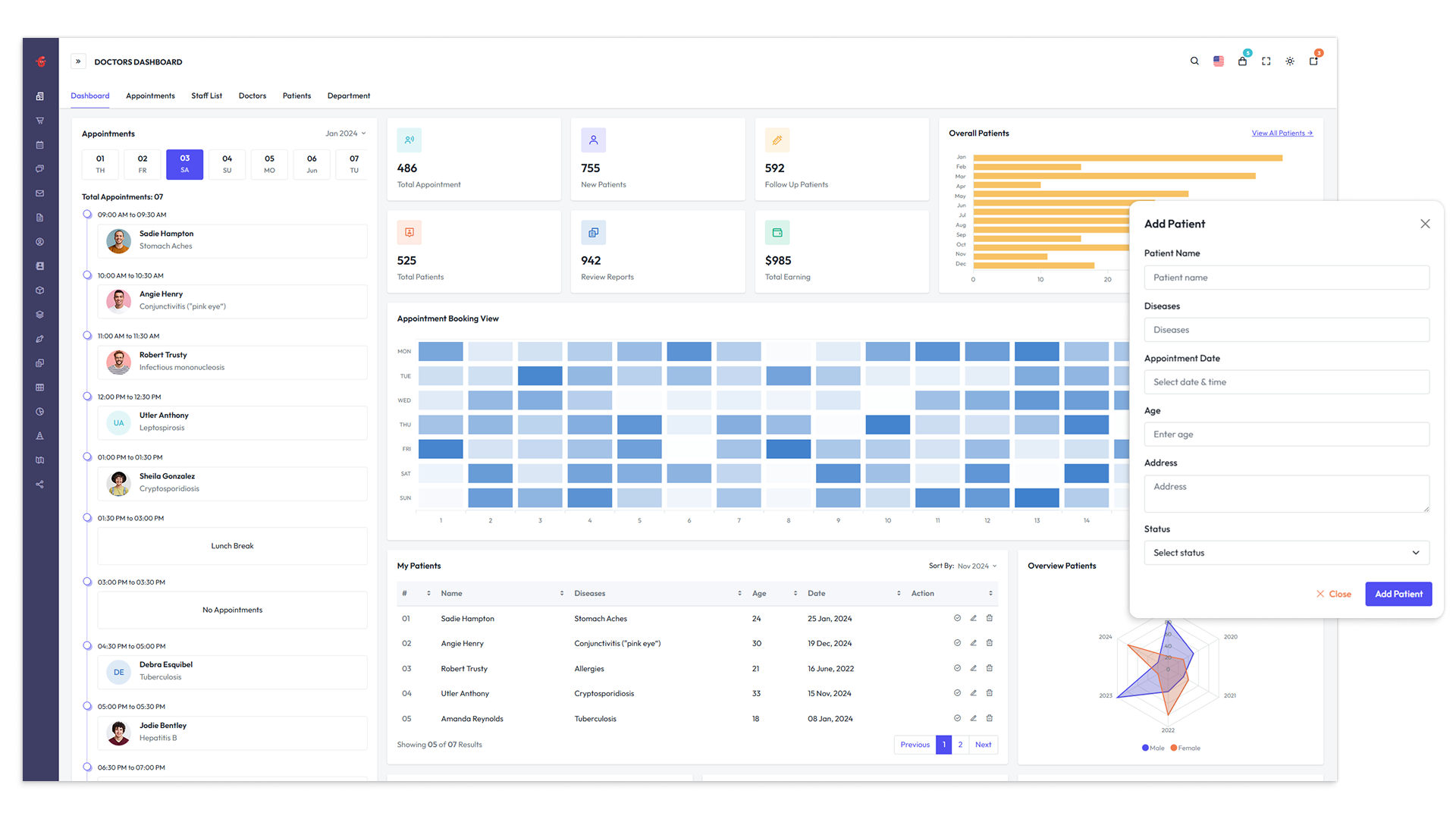
Custom CRM system development helps businesses to increase profitability mainly by increasing conversions, average check, repeat sales and more. Let’s see exactly how CRM development can help you earn more.
A clear sequence of program development allows developers and the customer to control the progress of the project and understand what result it is moving towards.
1. Analysis
At the initial stage it is important to study the business structure, main processes, weaknesses and automation goals. For this purpose, analysts collect information about the company and determine the requirements for the program, conduct analysis of documents, reports and competitors, workshops to form a common vision of the project.
2. Terms of Reference
On the basis of the analysis the Terms of Reference are formed, which outlines the functional and non-functional requirements for the CRM-system, architecture, integration with other services, security and performance requirements. TOR serves as a basis for further development and allows to avoid rework and misunderstandings between the customer and the developer.
3. Design and prototyping
At the stage of CRM system design determine the logical structure of the future CRM-system and links between the various modules and databases. Further, interactive prototypes are created, which allow you to visualize user scenarios and test the usability of the interface before writing the program code. For prototyping such tools as Moqups, Figma, Sketch are used, which allow to create visual and functional prototypes.
4. UX/UI design development
A customized program should have an attractive, intuitive user interface with a unique design that matches the visual style of the company. Our team always strives to create the most user-friendly, adaptive and useful tool with a concise interface and quick access to key functions. Dashboards, dashboards, notifications, prompts and user interaction logic allow all employees to quickly learn the program.
5. Project realization (writing program code)
This is the main stage, when developers write program code for client (frontend) and server (backend) parts of CRM-system, perform the necessary integrations. For project realization we use modern programming languages (JavaScript, Python, PHP), frameworks (e.g. React, Angular, Vue.js, Laravel) and databases (e.g. PostgreSQL, MySQL, MongoDB) to create a reliable and productive system. We adhere to the principles of clean code, modularity, and scalability.
6. Testing
After the development is completed, the CRM system is comprehensively tested to check functionality, security, usability, performance, resistance to heavy loads. QA engineers check the compliance of the system with the requirements of the ToR to eliminate bugs and ensure high quality of the final product.
7. Release
After successful testing, the CRM system is deployed on the client’s servers or in cloud storage. They migrate data from existing programs, train users to work with the new system, providing video tutorials, documentation and consultations. It is important to ensure a smooth transition to the new system and not to slow down the client’s business.
8. Project support and development
After implementation of the system, our specialists provide technical support, perform updates, ensure further development and scaling of the CRM-system in accordance with new business needs and market conditions. We introduce new features and integrations, flexibly adapting your system to any internal and external changes.
Process of creating a CRM system interface
At first glance, off-the-shelf programs may seem like a simple and affordable solution: quick startup, standard functionality, low entry threshold. However, universality hides serious limitations, especially if you plan to scale or work in a specific niche. Therefore, the best CRM systems for business are developed individually.
Limitations in logic and architecture
Typical platforms usually don’t take into account a company’s unique business processes, forcing the company to adapt to the logic of the system rather than the other way around. This leads to a search for compromises: the program turns out to be too complex, has a lot of unnecessary functions and an inconvenient interface. As a result, part of the team uses CRM formally or ignores it altogether, and processes continue to go manually, that is, past the system.
Difficulties with customization
Modification of the standard CRM-system for small and medium-sized businesses for their tasks often requires costly improvements that are difficult to agree or technically realize within the boxed solution. Often it turns out that the desired functionality is simply in principle impossible to realize without a complete revision of the platform architecture.
Dependence on the provider
If the system runs on an external server, the business becomes dependent on updates, tariffs, technical support, privacy policy and even API availability.
Limited scalability
Off-the-shelf CRM for SMBs is suitable for companies with a typical structure. But when a company goes beyond the standards, a simple CRM system for small business starts to stall development because it is unable to scale proportionally to the business.
Creating a CRM system from scratch is not an alternative, but a strategic decision. If having complete control over your data, flexibility and long-term growth is important to you, custom CRM development will be the best choice. It is a solution that grows with the business and really works for results. On our website you can see how a customized CRM system is developed – an example of our approach to work and the result.
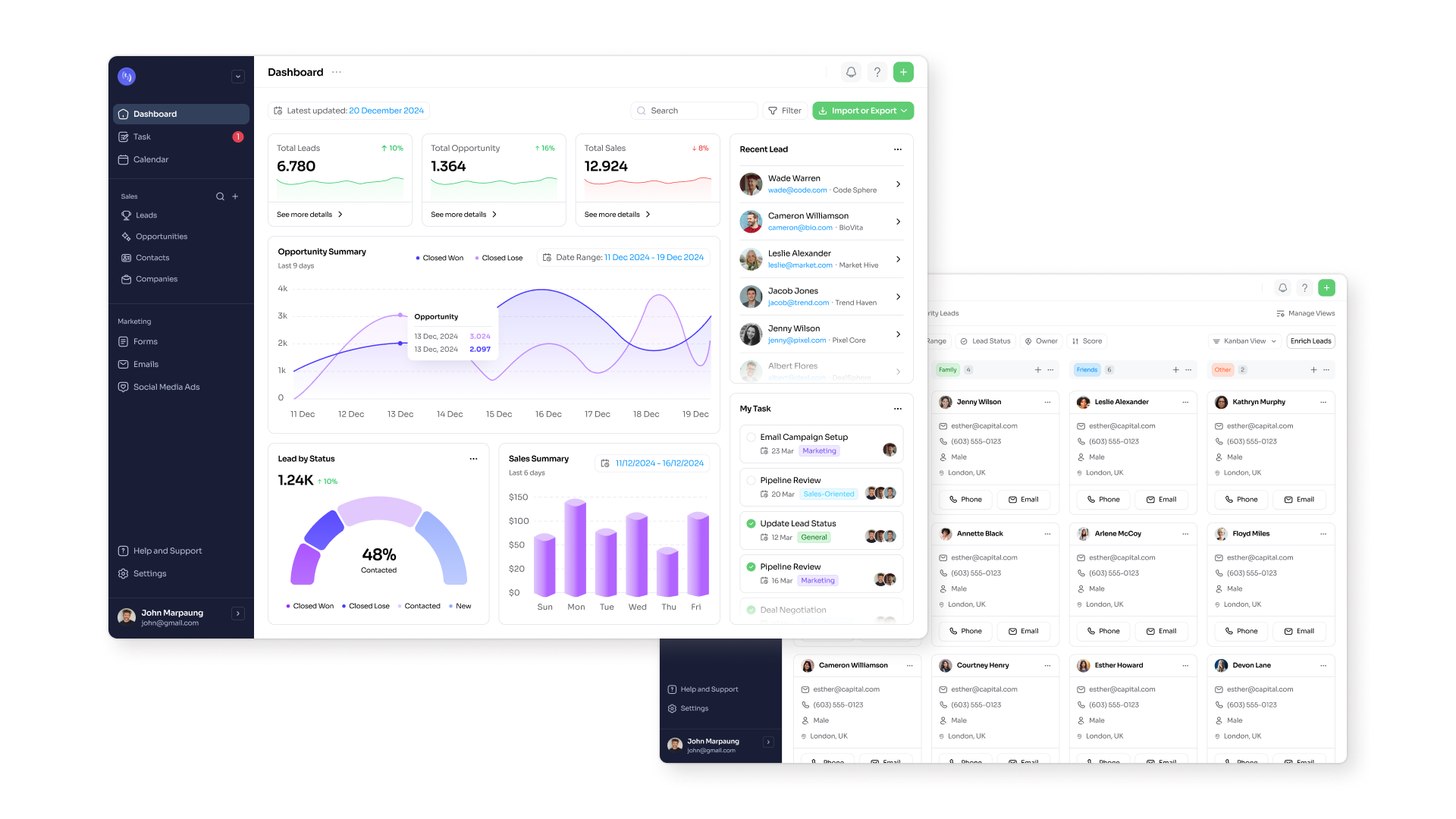
Many people still think that CRM systems are a solution only for large companies with large sales and marketing departments. But in practice, small companies face the same challenges, only he has much less resources to cope with them. But even a simple CRM for small business helps to overcome them.
Finally, implementing CRM for small businesses opens access to tools that were previously available only to large companies: marketing automation, sales analytics, and funnel management. This allows you to compete on an equal footing and grow faster without increasing staff costs.
Implementing a CRM system is a huge step forward for any business, and it does come with some risks. But all the potential problems are insignificant compared to the benefits that automation brings. And if you order CRM development from an experienced team, you can successfully manage these risks and minimize them.
High cost of implementation
Developing a CRM system does require investment: both financial and time. The main reasons for the high cost are the development of custom functionality, adaptation of the existing system to the specifics of the business, integration with other services, and creation of a unique design.
In case of custom development, the costs are optimized due to precise elaboration of functionality, absence of unnecessary modules and flexible budget management. You pay only for what your business really needs, not for unnecessary functions.
Difficulties with staff training
Transition to a new system always requires adaptation of employees, due to which there may be a decrease in their productivity at the start of the program implementation. When developing CRM from scratch, we take into account the peculiarities of employee tasks and regular processes, so the interfaces and logic of work are maximally adapted to different groups of users. In addition, we provide training and follow-up support, ensuring a smooth and stress-free transition to the new CRM.
Employee resistance
Any change in the way a company operates can cause staff wariness or resistance: employees may be afraid of additional responsibilities, supervision, or more complex workflows. This risk is minimized by user-friendly interfaces designed with real user tasks in mind, as well as team involvement in the implementation process. When employees understand the value of the system and see that it simplifies their work, not complicates it, the level of resistance is significantly reduced.
Technical failures and provider dependency
Any digital system can encounter technical glitches. And we realize that every downtime due to technical glitches is business critical. That’s why we offer custom CRM development services wherein we create a unique robust architecture, scalable infrastructure and thoroughly test the product and provide technical support and updates after launch, reducing the risk of downtime due to program failures. In addition, if your program is hosted internally, it is completely independent of third parties.
Lengthy implementation process
The development and implementation of CRM for business really takes time when it comes to a unique complex solution. Our specialists build the process step-by-step, using flexible development methodologies (Agile, Scrum), which allows you to implement the system gradually, but without delay. Our specialists build the process step-by-step, using flexible development methodologies (Agile, Scrum), which allows to implement the system gradually, but without delaying the deadlines. With this approach, the customer will see the first results sooner.
Data security and confidentiality
CRM system for business stores and processes important data: customer bases, transactions, reports, financial information. The threat of data leakage is one of the most serious risks. Therefore, during custom development we use modern data protection protocols, multi-level system of access rights, information encryption and backup. We always ensure a high level of security and compliance with legal requirements.
All risks are usually associated with incorrect choice of solutions or poor quality project implementation. When you work with an experienced team that develops CRM for your business, they are manageable at every stage.
Key criteria for choosing a CRM development company for business:
The choice of a reliable contractor is a key factor in the successful realization of a CRM project. With our team CRM will be for your company a powerful tool for growth, efficiency and business control.
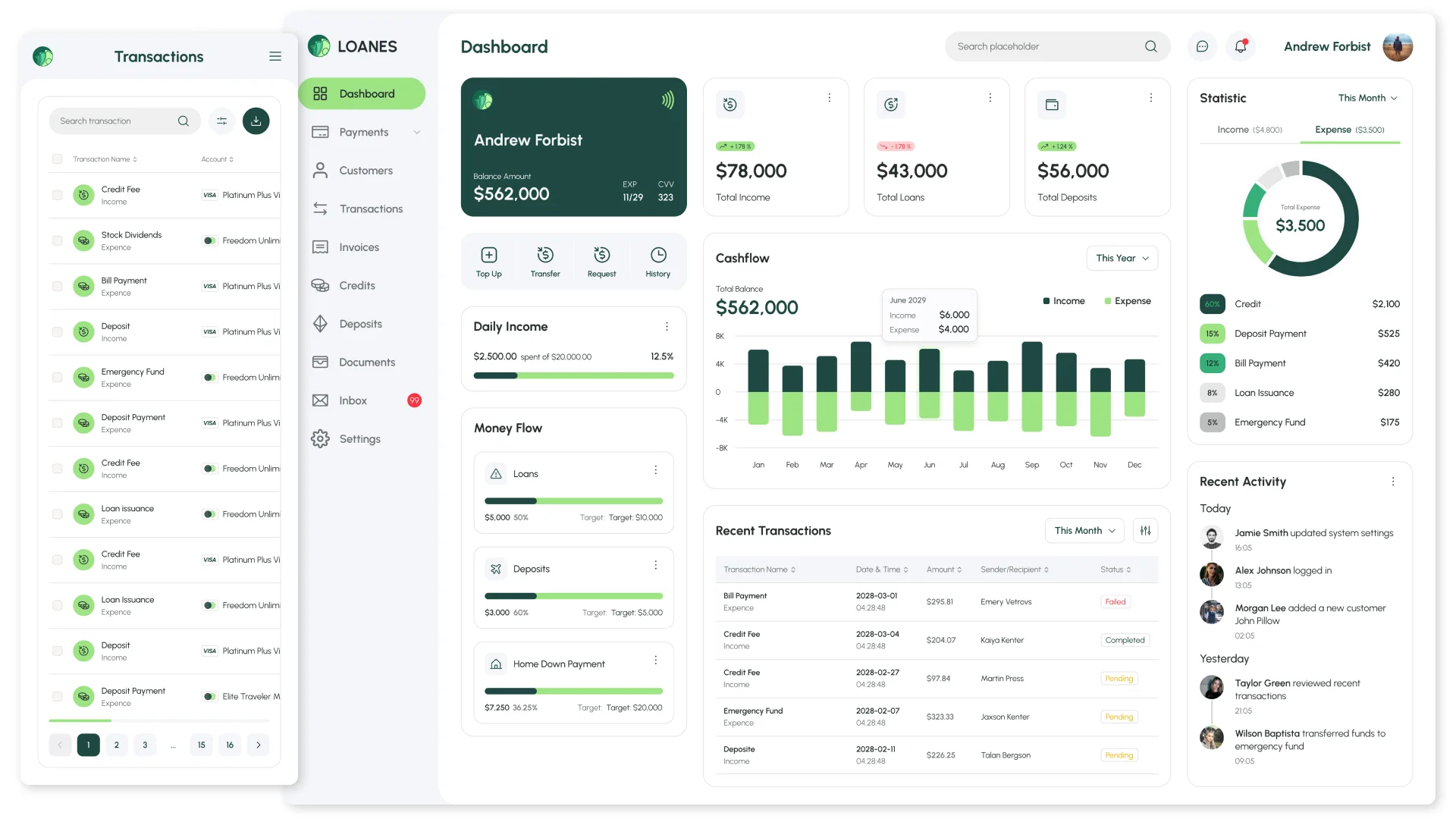
Our team has been developing CRM solutions for businesses from startups to large manufacturing companies, from trade to hospitality for more than 10 years. We know for sure: CRM costs (implementation, development, support) are an investment in a sustainable future, that’s why we create unique software products. It is profitable to order CRM development from us because we:
Does CRM replace an ERP system?
A CRM system for your business won’t replace ERP, but it can complement or close some of the functionality, such as warehouse, financial, and task management.
Is it possible to work in CRM without Internet access?
If the system is cloud-based, it will be temporarily unavailable without a network connection, but the data will be saved. Creating CRM systems on an internal server ensures complete autonomy.
How to avoid overloading the CRM interface for large businesses?
When developing a CRM system for business, the roles of employees are taken into account, meaning that each user sees only the blocks he or she needs. This makes the interface easy, does not distract from tasks, and helps to use the program as efficiently as possible.
How much time and investment does it take to create a CRM from scratch?
How long it will take to develop a CRM system, the price of the program, and further support after implementation depends on the complexity of the project. A basic turnkey CRM can be ready in 3-4 months, while more complex solutions with integrations and advanced functionality will take longer. You can order an MVP – a management system with key functions and gradually develop it.
The cost of a CRM system for a small business and a large company differs due to the different scope of work, the required stack, the specialists involved, and the development time.
Is it possible to order a mobile version of CRM?
We develop cross-platform mobile CRMs for iOS and Android so you can control sales, finances, and tasks from anywhere. Access to CRM for your business via smartphone is also convenient for field employees, couriers, insurance and sales agents.
How do I know what features my business needs?
Before developing a CRM, we conduct a detailed audit of business processes. We analyze which tasks take a lot of time, where mistakes are possible, and how processes can be automated. Based on this data, we design a CRM that solves real business problems.
How difficult is it for employees to learn how to work in CRM?
If CRM is customized for your company’s processes, training takes a minimum of time. Our developers create the interface and logic of the CRM system for business so that all users can work with the program conveniently and clearly. In addition, we train employees, provide step-by-step guides, video instructions, and chat support. This helps to quickly adapt the team to the new tool and use CRM as efficiently as possible.
Can I use CRM to work with contractors or franchisees?
CRM can be a great platform for controlling external teams and partners. In the program, you can set access levels, delegate tasks, and track work in a single system.
How to evaluate the effectiveness of CRM after implementation?
It depends on what analytics the CRM system provides, for example: sales figures, funnels, task completion, customers, etc.
Is it possible to manage the production cycle with CRM?
Custom CRM development for a manufacturing business may include the implementation of modules for planning and controlling production stages, product quality, material accounting, equipment loading, and much more.
Our works
Contact the experts Have a question?
The user, filling out an application on the website https://avada-media.ua/ (hereinafter referred to as the Site), agrees to the terms of this Consent for the processing of personal data (hereinafter referred to as the Consent) in accordance with the Law of Ukraine “On the collection of personal data”. Acceptance of the offer of the Consent is the sending of an application from the Site or an order from the Operator by telephone of the Site.
The user gives his consent to the processing of his personal data with the following conditions:
1. This Consent is given to the processing of personal data both without and using automation tools.
2. Consent applies to the following information: name, phone, email.
3. Consent to the processing of personal data is given in order to provide the User with an answer to the application, further conclude and fulfill obligations under the contracts, provide customer support, inform about services that, in the opinion of the Operator, may be of interest to the User, conduct surveys and market research.
4. The User grants the Operator the right to carry out the following actions (operations) with personal data: collection, recording, systematization, accumulation, storage, clarification (updating, changing), use, depersonalization, blocking, deletion and destruction, transfer to third parties, with the consent of the subject of personal data and compliance with measures to protect personal data from unauthorized access.
5. Personal data is processed by the Operator until all necessary procedures are completed. Also, processing can be stopped at the request of the User by e-mail: info@avada-media.com.ua
6. The User confirms that by giving Consent, he acts freely, by his will and in his interest.
7. This Consent is valid indefinitely until the termination of the processing of personal data for the reasons specified in clause 5 of this document.
Send CV
Contact us in any convenient way for you:
+ 38 (097) 036 29 32